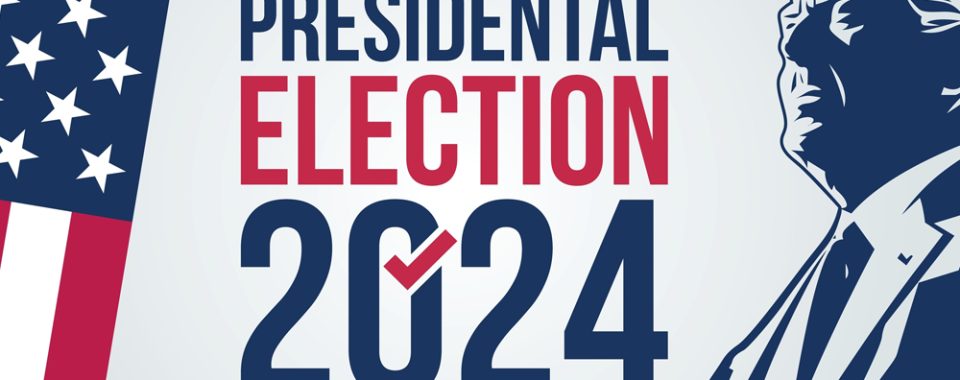
The election of Donald Trump to the presidency is already shaping the business and economic landscape, sparking a spectrum of reactions from optimism to uncertainty. For small businesses, understanding the ripple effects of this political shift is crucial to crafting strategies that can withstand potential fluctuations in market sentiment. At Golden Seller Marketing, with a proven 94% success rate in helping businesses navigate complex market dynamics, we’ve analyzed how this change may influence small businesses and what strategies can drive success in the evolving environment.
Market Sentiment: A Mixed Bag of Reactions
Market sentiment, a barometer of economic confidence, often reflects consumer and investor expectations for the future. In the wake of Trump’s election, two dominant narratives have emerged:
- Optimism Among Business Advocates
- Trump’s promises of tax cuts, deregulation, and a pro-business agenda have resonated with a significant portion of the market. This optimism is likely to spur increased investment and spending in certain industries, including construction, finance, and manufacturing, as businesses anticipate a more favorable operating environment.
- Caution Amid Uncertainty
- On the other hand, concerns about potential trade wars, unpredictable policy shifts, and the social impact of divisive rhetoric have made some consumers and businesses wary. This caution could dampen discretionary spending in sectors like retail and hospitality, creating challenges for small businesses heavily reliant on consumer confidence.
How Small Businesses Could Be Affected
Small businesses, the backbone of the U.S. economy, are particularly sensitive to changes in market sentiment and government policies. Here’s how the Trump election could influence small businesses:
1. Tax Policy Changes
Trump’s proposed tax reforms, including corporate tax rate reductions, could benefit small businesses by increasing profitability and freeing up cash flow for reinvestment. However, these benefits may be unevenly distributed, depending on the size and structure of the business.
2. Regulatory Environment
The administration’s emphasis on deregulation could ease compliance burdens for small businesses in industries such as energy, finance, and construction. This could lower operating costs and create opportunities for growth. However, less regulation could also introduce risks, particularly for businesses dependent on stable environmental or labor standards.
3. Trade Policy Uncertainty
For small businesses involved in international trade, changes to trade agreements and tariffs could disrupt supply chains and increase costs. Adapting to these shifts will be critical for businesses reliant on imported goods or foreign markets.
4. Polarized Consumer Sentiment
Consumer spending patterns may shift along ideological lines, with customers favoring businesses that align with their values. For small businesses, this polarization underscores the importance of understanding and connecting with target audiences.
Golden Seller Marketing’s Strategic Insights
At Golden Seller Marketing, we understand that the key to thriving in uncertain times lies in adaptability, foresight, and targeted strategies. Here’s how we recommend small businesses navigate the impact of the Trump election:
1. Build a Resilient Brand
In a polarized environment, branding that emphasizes authenticity and shared values can foster loyalty. Whether it’s sustainability, community engagement, or innovation, highlighting your business’s unique story and mission can help build deeper connections with your audience.
2. Monitor Market Trends
Staying ahead of market sentiment requires constant vigilance. Tools like sentiment analysis and market research can help identify emerging consumer preferences and adapt your offerings accordingly. Golden Seller Marketing employs data-driven strategies to keep our clients at the forefront of industry trends.
3. Leverage Digital Channels
The digital landscape remains a powerful tool for reaching and engaging consumers. A strong online presence, from social media to search engine optimization (SEO), can help small businesses remain visible and competitive, even during periods of economic uncertainty.
4. Optimize Financial Strategies
Prepare for potential fluctuations in revenue by streamlining operations and exploring alternative revenue streams. Tax planning and financial forecasting will be crucial as new policies come into effect.
5. Invest in Customer Relationships
Customer loyalty is a valuable asset in uncertain times. Personalized marketing, excellent service, and consistent communication can help maintain strong relationships with your audience, ensuring repeat business and word-of-mouth referrals.
What’s Next for Small Businesses?
The Trump election is a reminder that political shifts can have far-reaching effects on businesses and markets. While challenges may arise, so too will opportunities for small businesses ready to adapt. At Golden Seller Marketing, our 94% success rate is built on helping businesses navigate uncertainty with confidence. From crafting strategic marketing plans to leveraging data insights, we empower small businesses to thrive in any environment.
By focusing on resilience, adaptability, and data-driven strategies, small businesses can turn uncertainty into opportunity, building a foundation for long-term success. As the economic landscape evolves under the new administration, the key is to stay informed, proactive, and aligned with the needs of your customers.
Ready to Strategize? Let’s Talk.
At Golden Seller Marketing, we specialize in helping businesses adapt to changing market conditions. Whether you’re looking to refine your brand, optimize your digital presence, or navigate the impacts of political shifts, our team is here to help. Contact us today to learn more about how we can support your business growth.












